Broadcasting revolution underway
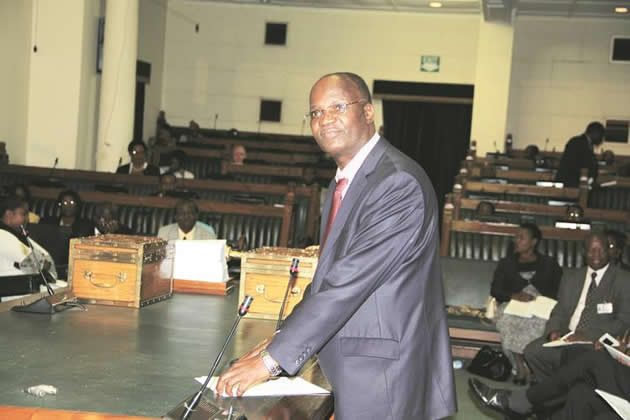

Information, Media and Broadcasting Services Minister Professor Jonathan Moyo debates on the progress Government has made in implementing the country’s Digital Broadcast Television Migration Project
We publish here the Ministerial Statement delivered by Information, Media and Broadcasting Services Minister Professor Jonathan Moyo to the National Assembly as he gave an update on the Zimbabwe Digital Migration Project yesterday.
MR Speaker, Sir, I am most grateful for this opportunity to update Parliament on the progress Government has made in implementing the country’s Digital Broadcast Television Migration Project.
The now well-known background to this is that in 2006, the International Telecommunications Union (ITU) prescribed 17 June, 2015 as the deadline for member-states to migrate from the current analogue television broadcasting technology to the new digital television platform.
Since then Mr Speaker, Zimbabwe has endeavoured to meet the 17 June, 2015 digital migration objective not only in order to comply with the binding ITU deadline but also to address the challenge of Universal Access to Information in the country. This has not been easy to do because the digital migration process is capital intensive and it requires extensive investment to acquire the requisite transmission infrastructure for both radio and television.
Over the years, Zimbabwe has faced formidable challenges in mobilising the required financial resources to fund the digital migration process. In fact, lack of funding has been the number one factor that has seriously delayed the country’s implementation of digital migration.
However, Mr Speaker, I am happy to advise Parliament that Government has since found the needed funding through the issuance of a Datacasting Licence for the Digital Dividend on the Frequency Spectrum reserved for broadcasting between 470 Mhz to 790 Mhz on the Ultra High Frequency (UHF). Specifically the Digital Dividend for Zimbabwe is between the band 694 Mhz and 790 Mhz while 470 Mhz and 694 Mhz is what will be used for the new digital television broadcasting.
The Datacasting Licence was issued to NetOne on 23 December, 2014 by the Broadcasting Authority of Zimbabwe (BAZ) at the cost of US$200 million after an open, transparent and competitive licensing process in accordance with the Broadcasting Services Act.
It is this US$200 million, Mr Speaker, that is being used by Government to fund Zimbabwe’s digital migration project.
What this means is that the broadcasting sector has been innovative enough to fund the country’s digital migration project. This is commendable given the challenge of competing demands on Treasury.
After securing the US$200m, BAZ engaged a Chinese company, Huawei Technologies, to implement the digital migration project on the basis of a Feasibility Study that the company submitted to Government last year. The study was done in pursuance of a Memorandum of Understanding (MoU) that the Minister of Finance and Economic Development, Honourable Patrick Chinamasa, signed in Beijing with Huawei Technologies on 28 August, 2014 during the historic state visit by His Excellency the President to the People’s Republic of China.
The MoU provided for Huawei to carry out a comprehensive and detailed Feasibility Study on a digital Migration Solution for Zimbabwe. Huawei carried out that study between September 2014 and December 2014.
Upon receipt of the completed study in December 2014, BAZ submitted the project to the relevant tender process for national security projects, given that the national transmission backbone is a national security asset.
On 25 February, 2015 BAZ concluded and signed with Huawei an agreement to implement Zimbabwe’s Digital Migration Project at the cost of US$125 million to be paid from the US$200 million raised through the licensing of the Digital Dividend for a Datacasting Licence issued to NetOne.
The implementation of the digital migration is therefore now underway as we speak, Mr Speaker, Sir. Its implementation is in two phases.
Phase One will cover the digitalisation of 24 existing transmitter sites plus six new sites to bring to 30 transmitter sites which will be operational by the end of Phase One. Also to be covered under this Phase are a monitoring system for regulatory purposes by BAZ and a Head-End for managing the new system under the auspices of Transmedia. This will be done by 17 June 2015 — which is the ITU deadline.
As such, Mr Speaker, Zimbabwe’s compliance with the ITU deadline will be achieved under Phase One of the project’s implementation. BAZ will ensure that there will be no analogue television transmitter anywhere along or near our borders to interferewith any of our neighbours. That is the essence of the ITU deadline — not to interfere with the digital television broadcasting services of your neighbour by continuing to broadcast through analogue transmitters along or near your borders.
In this regard Mr Speaker, Honourable Members should take note that the ITU deadline is a “Switch-Off”, not a “Switch-On” deadline. It is a deadline to switch-off analogue television transmitters along or near our borders. There’s therefore no question that we will somehow fail to switch-off those analogue television transmitters along or near our borders. In any event, in a number of cases there will be nothing to switch-off because there are no analogue television transmitters along or near our borders. Actually, BAZ will build six new transmitter sites in Binga, Chikombedzi, Chipinge, Hwange, Kotwa and Maphisa. These border areas currently have no television transmitters and will be installed with television transmitters for the first time in their history. Mr Speaker, Phase Two will involve the digitalisation of 18 new transmitter sites, six (6) ZBC Studios, six (6) content production centres, a web television system, five (5) radio transmission studios, six (6) radio production studios and 25 radio transmitter sites. The Second Phase will be completed in December 2015 except for the revamping of the 25 radio transmitters which will be done by the end of January 2016.
Mr Speaker, an equally important dimension of the country’s digital migration project is the need for set-top-boxes for use by consumers or the general public. These boxes are decoders that are necessary to convert the analogue television signal into a digital signal to enable its viewing on television screens. Whereas television sets that are digitally enabled are already available, there are many television sets in use across the country that are not digitally enabled.
In any event, Mr Speaker, whether a television set is digitally enabled or not, will ultimately not matter because the television broadcast signal will be encrypted such that a set-top-box will be necessary to decrypt the signal. This is because public broadcasting will be moving from the current Television Licence regime to a new ICT application which will be technologically based. Under the new system the current Television Licence Fee will become an Access Fee which is proposed to cost between $3 and $5 a month per television sets.
This means television services will be subscription based as a result of digital migration.
Everyone who watches television will be required to pay an Access Fee through subscription. This includes those who subscribe to satellite television content such as DSTV. The Manual Access Television License will be retained for those who will choose not to subscribe to any licenced television content but this licence would be at a very high scale to cover the cost of its manual collection.
It would therefore be prudent and cost effective, Mr Speaker, for owners of television sets to subscribe to licenced television content.
Otherwise, Mr Speaker, Government will secure and subsidise between 300 000 and one million set-top-boxes to kick-start the digital migration project during Phase One. Beyond that, the market will be expected to take its course.
As I conclude this update Mr Speaker, I wish to highlight some of the important advantages or benefits of the digital migration project.
First, Mr Speaker, a major windfall of digitalisation is that the country will have far more television broadcasting channels or services than ever before.
The two television frequencies currently on VHF, both being used by ZBC-TV, will become four frequencies (or four multiplexes) on UHF as a result of the digital migration project.
Each one of these four frequencies will be capable of transmitting signals of some 21 Standard Definition (SD) channels or six High Definition (HD) channels.
Of the four new UHF frequencies or multiplexes ZBC — which currently has both of the two frequencies that are currently available on VHF will have two multiplexes. The third multiplex will be available for licensing at least six (6) private commercial television broadcasters while the fourth multiplex will be reserved for future use to be decided by future generations.
Out of the two multiplexes for the public broadcaster, one will be dedicated to the National Assembly to cover House sessions and Portfolio Committee proceedings on a continuous basis.
Mr Speaker, Sir, the second benefit of the digital migration project is that the new channels will create new and unprecedented demand for television content.
This is an exciting opportunity for local content producers with an even more exciting promise of employment creation and contribution to our country’s economic growth and development.
Finally, Mr Speaker, the third major benefit of the digital migration is that after its completion by the end of January 2016 or thereabout, we shall have total geographic coverage of the populace for both radio and television broadcasting for the first time in the history of the country. This will be a major milestone, however, one looks at it.
It is therefore the case that we have a broadcasting revolution underway.
I thank you, Mr Speaker.

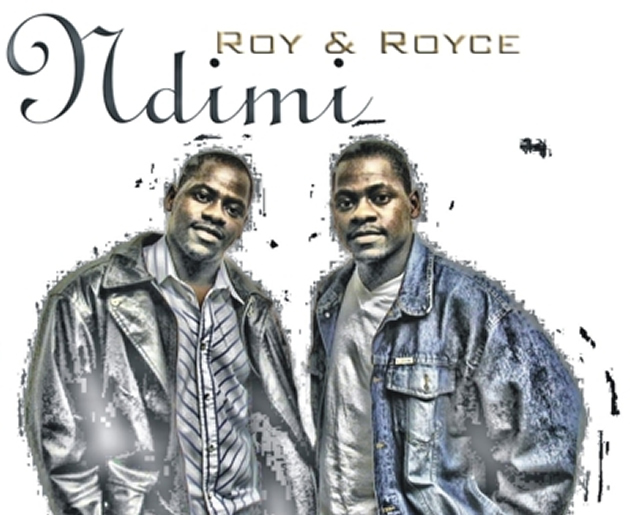
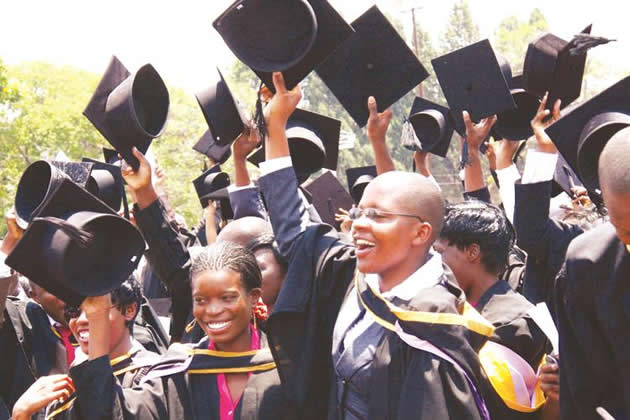

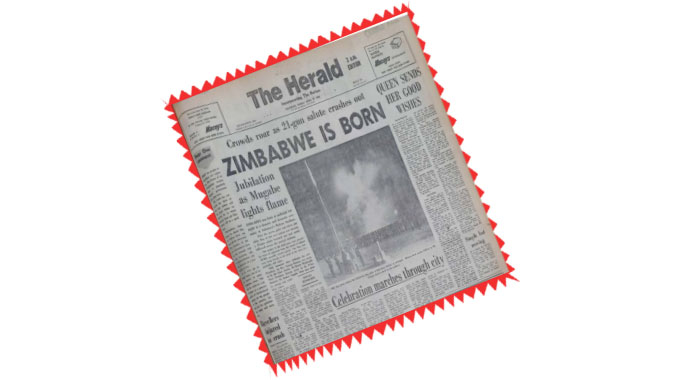
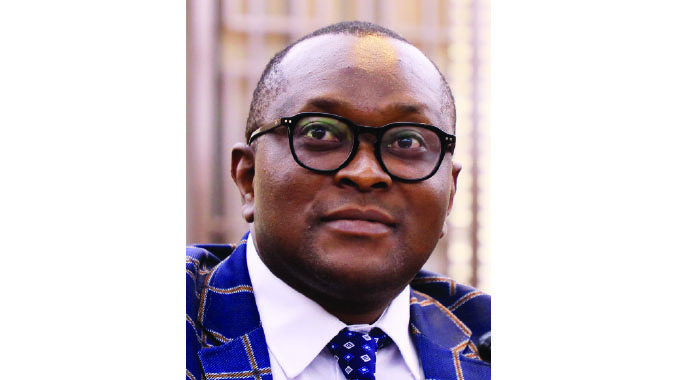

Comments